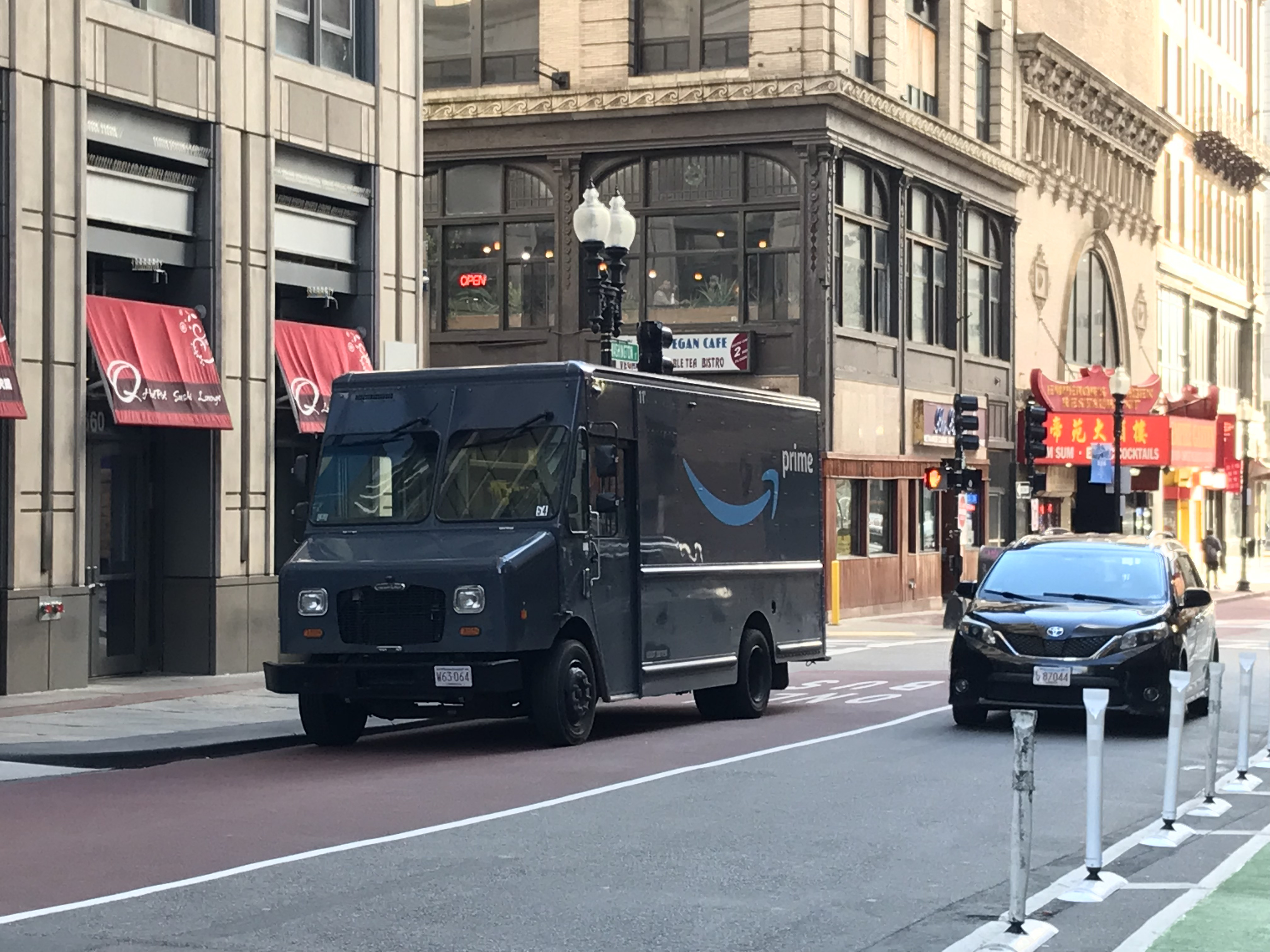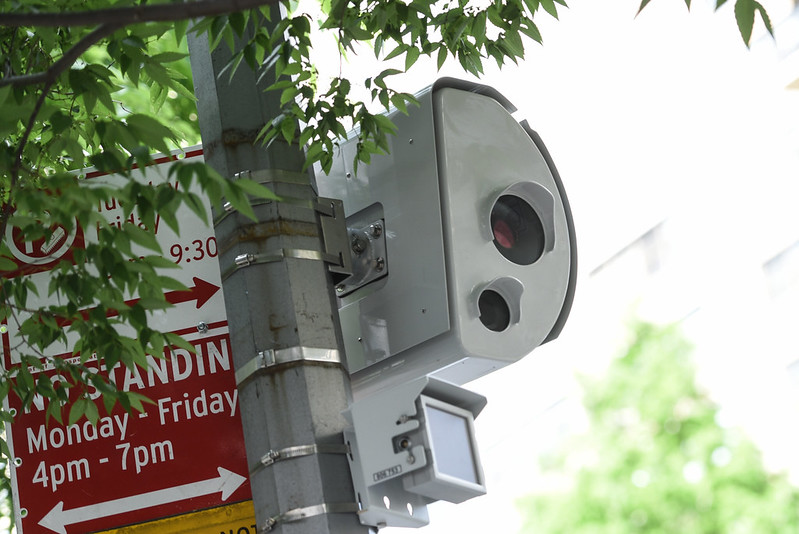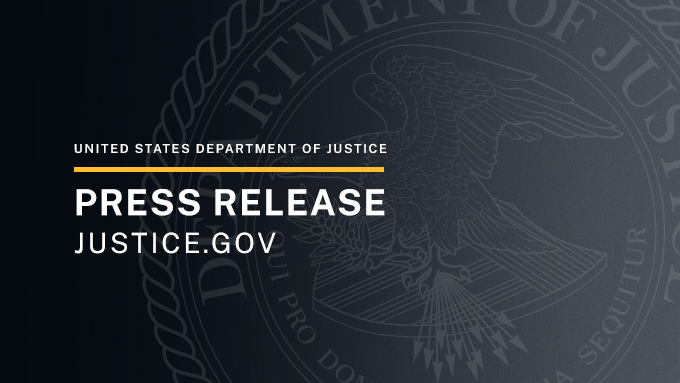Doesn't this just say it's on the Governor's Desk? It isn't in the "Acted On" section
You may be mixing up the school bus bill and the bus lane bill, which are separate pieces of legislation.
Doesn't this just say it's on the Governor's Desk? It isn't in the "Acted On" section
You may be mixing up the school bus bill and the bus lane bill, which are separate pieces of legislation.

S2884 - yes! Camera based enforcement of bus lanes on vehicles and camera based bus stop enforcement with safety sticks! This is great! Every city and town should be putting these in every square like Somerville has done in Davis Square!

WCVB has a similar news report this morning, but the chit chat was mostly about allowing traffic light cameras.
Governor's Budget Bill Would Legalize Speed Limit Enforcement Cameras Statewide - Streetsblog Massachusetts
If it's approved, the legislation would take effect on July 1, 2026.mass.streetsblog.org

And here is the proposal for speed cameras statewide.This statement is a perfect example of the slippery slope fallacy. This would be a perfect example to use in a logic textbook.

Seems like this generally a universal boon for anyone outside of a car? Less box-blocking, better traffic flow and increased road capacity from lower travel speeds. Lower tire noise, lower engine noise, lower particle pollution from tire wear, fewer accidents, lower insurance premiums, safer streets for pedestrians, safer streets for cars. Safer streets for bikers, more predictable car movements, more tax revenue to support transit and infrastructure projects. Potentially discourages people from driving and mode-shifting into other transit. Only thing is I'm not sure how it will impact buses.And here is the proposal for speed cameras statewide.

Lights. Camera. Ticket? Healey wants to allow Mass. cities, towns to deploy speed cameras. - The Boston Globe
Officials from Boston, Cambridge, and elsewhere have for years sought the ability to use automated cameras for traffic enforcement, arguing it could lessen the burden on local law enforcement and help reduce crashes.www.bostonglobe.com
Slippery slope just got even slipperier. Along with other tax raising proposals.
Translation: Seems like the majority of people in Massachusetts will be punished for their lifestyle choices with potentially overzealous and corruptly-implemented automated fines!Seems like this generally a universal boon for anyone outside of a car? Less box-blocking, better traffic flow and increased road capacity from lower travel speeds. Lower tire noise, lower engine noise, lower particle pollution from tire wear, fewer accidents, lower insurance premiums, safer streets for pedestrians, safer streets for cars. Safer streets for bikers, more predictable car movements, more tax revenue to support transit and infrastructure projects. Potentially discourages people from driving and mode-shifting into other transit. Only thing is I'm not sure how it will impact buses.

You mean as opposed to today's corruptly implemented lack of fines for scofflaws, where Massachusetts police officers get massive overtime for looking the other way and not ticketing anybody?Translation: Seems like the majority of people in Massachusetts will be punished for their lifestyle choices with potentially overzealous and corruptly-implemented automated fines!

Representative of Chicago Area Red-Light Camera Company Sentenced to Five Years in Federal Prison
CHICAGO —A sales agent for a Chicago-area red-light camera company, Company A, has been sentenced to more than five years in federal prison for conspiring to pay bribes to a public official and for filing a false tax return.www.justice.gov
Two wrongs don't make a right.You mean as opposed to today's corruptly implemented lack of fines for scofflaws, where Massachusetts police officers get massive overtime for looking the other way and not ticketing anybody?
Driving isn’t a right and the fact that driving is viewed as a necessity is a societal problem worth solving.Translation: Seems like the majority of people in Massachusetts will be punished for their lifestyle choices with potentially overzealous and corruptly-implemented automated fines!

Representative of Chicago Area Red-Light Camera Company Sentenced to Five Years in Federal Prison
CHICAGO —A sales agent for a Chicago-area red-light camera company, Company A, has been sentenced to more than five years in federal prison for conspiring to pay bribes to a public official and for filing a false tax return.www.justice.gov
By "lifestyle choices," you mean "speeding?" The proposal is to automatically ticket people who are speeding.Seems like the majority of people in Massachusetts will be punished for their lifestyle choices
There's nothing in that press release that says the system was being overzealous. They were ticketing people who ran red lights. That is exactly what it was supposed to do.potentially overzealous and corruptly-implemented automated fines!
Anecdotally, I have found that other drivers are a lot less tolerant of fellow drivers moving at the signed limit if they perceive that it’s possible to drive faster. I have caught myself pushing more aggressively to avoid the annoyed honks and dirty looks.
The opportunity for corruption comes from the fact that once this is legal, companies that manage these cameras and often collect the fines will start hitting up every municipality in the Commonwealth hawking their system and the revenue it would generate. In that environment, graft is inevitable. My read is that folks here wouldn't care about that, because the negative incentive for driving only gets stronger as the fines get higher and the thresholds on the cameras get even more hair-trigger.By "lifestyle choices," you mean "speeding?" The proposal is to automatically ticket people who are speeding.
There's nothing in that press release that says the system was being overzealous. They were ticketing people who ran red lights. That is exactly what it was supposed to do.
And I don't see how the corruption charges make the automated ticketing a bad thing. The bad part was the corruption. In Chicago people have also paid bribes to get city contracts for concrete, trash removal, hospital services. That doesn't make any of those things inherently bad. Just the bribery part is bad.
I think that is separate from what I was talking about. I was describing the case where I am driving on a city street at, or very near, the posted speed limit with no one behind me. A driver approaches and honks because I choose not drive as they would.You need to understand the "true" speed limits vs the posted speed limits. Basically, there are 2 sets of additional penalties that trigger at 10 over the speed limit and again at 20 over the speed limit. Thus, on non-highway roads you can really do the posted speed limit +9, so say 39 in a 30 or 44 in a 35. One more mph and you'll trigger that next penalty and get pulled over. On the highways they more typically lean to the 20 mph penalty, particularly on the 55's. Thus you can go up to 74 mph on a 55, but you'll get pulled over at 75.
This is specifically for Massachusetts, although really covers most of New England and most of the Northeast. Small towns can be a different story but usually not in Massachusetts with an in-state plate. Also on 65 mph highways sometimes they'll get you starting at 80 instead of 85, particularly on a holiday weekend. Memorial Day weekend is a notorious one for speed traps.
Since everybody knows they have a buffer before getting pulled over, everybody typically exceeds the speed limit by at least a little bit. Even the "slow" drivers are typically doing 3-5 mph over on the roads and 5-10 mph over on the highways. That's why anybody going under the speed limit is actually among the most dangerous people on the road, as they're often doing 10+ mph slower than everybody else (ie not "driving with traffic").
If you're going below the posted speed limit it would make sense that people would be frustrated, since that's slower than about 99/100 drivers around here and probably significantly slower than at least 95/100 drivers. If everybody else is doing 34-39 in a 30 and you're doing 28, you're actually driving about 25-30% slower than normal traffic.
Hell, even the proposed speed camera bill defines speeding that way with a significant buffer - the camera trigger is to be set at posted limit +11, +6 in school zones. And, as currently written, it specifically excludes limited access highways (other than MassDOT work zones), where most of the speeding occurs anyways.You need to understand the "true" speed limits vs the posted speed limits. Basically, there are 2 sets of additional penalties that trigger at 10 over the speed limit and again at 20 over the speed limit. Thus, on non-highway roads you can really do the posted speed limit +9, so say 39 in a 30 or 44 in a 35. One more mph and you'll trigger that next penalty and get pulled over. On the highways they more typically lean to the 20 mph penalty, particularly on the 55's. Thus you can go up to 74 mph on a 55, but you'll get pulled over at 75.
This is specifically for Massachusetts, although really covers most of New England and most of the Northeast. Small towns can be a different story but usually not in Massachusetts with an in-state plate. Also on 65 mph highways sometimes they'll get you starting at 80 instead of 85, particularly on a holiday weekend. Memorial Day weekend is a notorious one for speed traps.
Since everybody knows they have a buffer before getting pulled over, everybody typically exceeds the speed limit by at least a little bit. Even the "slow" drivers are typically doing 3-5 mph over on the roads and 5-10 mph over on the highways. That's why anybody going under the speed limit is actually among the most dangerous people on the road, as they're often doing 10+ mph slower than everybody else (ie not "driving with traffic").
If you're going below the posted speed limit it would make sense that people would be frustrated, since that's slower than about 99/100 drivers around here and probably significantly slower than at least 95/100 drivers. If everybody else is doing 34-39 in a 30 and you're doing 28, you're actually driving about 25-30% slower than normal traffic.
And here is the proposal for speed cameras statewide.

Lights. Camera. Ticket? Healey wants to allow Mass. cities, towns to deploy speed cameras. - The Boston Globe
Officials from Boston, Cambridge, and elsewhere have for years sought the ability to use automated cameras for traffic enforcement, arguing it could lessen the burden on local law enforcement and help reduce crashes.www.bostonglobe.com
Slippery slope just got even slipperier. Along with other tax raising proposals.
Like I was saying, though, graft is possible in basically any government program. That doesn't make those government programs bad. The graft is bad. For example, we can have an MBTA and still prosecute anyone trying to bribe the MBTA. Likewise, we can have traffic enforcement cameras and prosecute anyone from those companies trying bribe government officials.The opportunity for corruption comes from the fact that once this is legal, companies that manage these cameras and often collect the fines will start hitting up every municipality in the Commonwealth hawking their system and the revenue it would generate. In that environment, graft is inevitable.
The camera system will not penalize someone for simply driving. It would ticket someone if they are speeding. You will still have a right to drive. You do not have a right to speed. Speeding is against the law.Driving is absolutely a lifestyle choice.
The MBTA is a single agency with easy accountability. There are 352 cities and towns worth of officials to bribe here (and not even necessarily personally).Like I was saying, though, graft is possible in basically any government program. That doesn't make those government programs bad. The graft is bad. For example, we can have an MBTA and still prosecute anyone trying to bribe the MBTA. Likewise, we can have traffic enforcement cameras and prosecute anyone from those companies trying bribe government officials.
The camera system will not penalize someone for simply driving. It would ticket someone if they are speeding. You will still have a right to drive. You do not have a right to speed. Speeding is against the law.
Nitpick, that I believe is important to correct:…You will still have a right to drive. You do not have a right to speed. Speeding is against the law.
